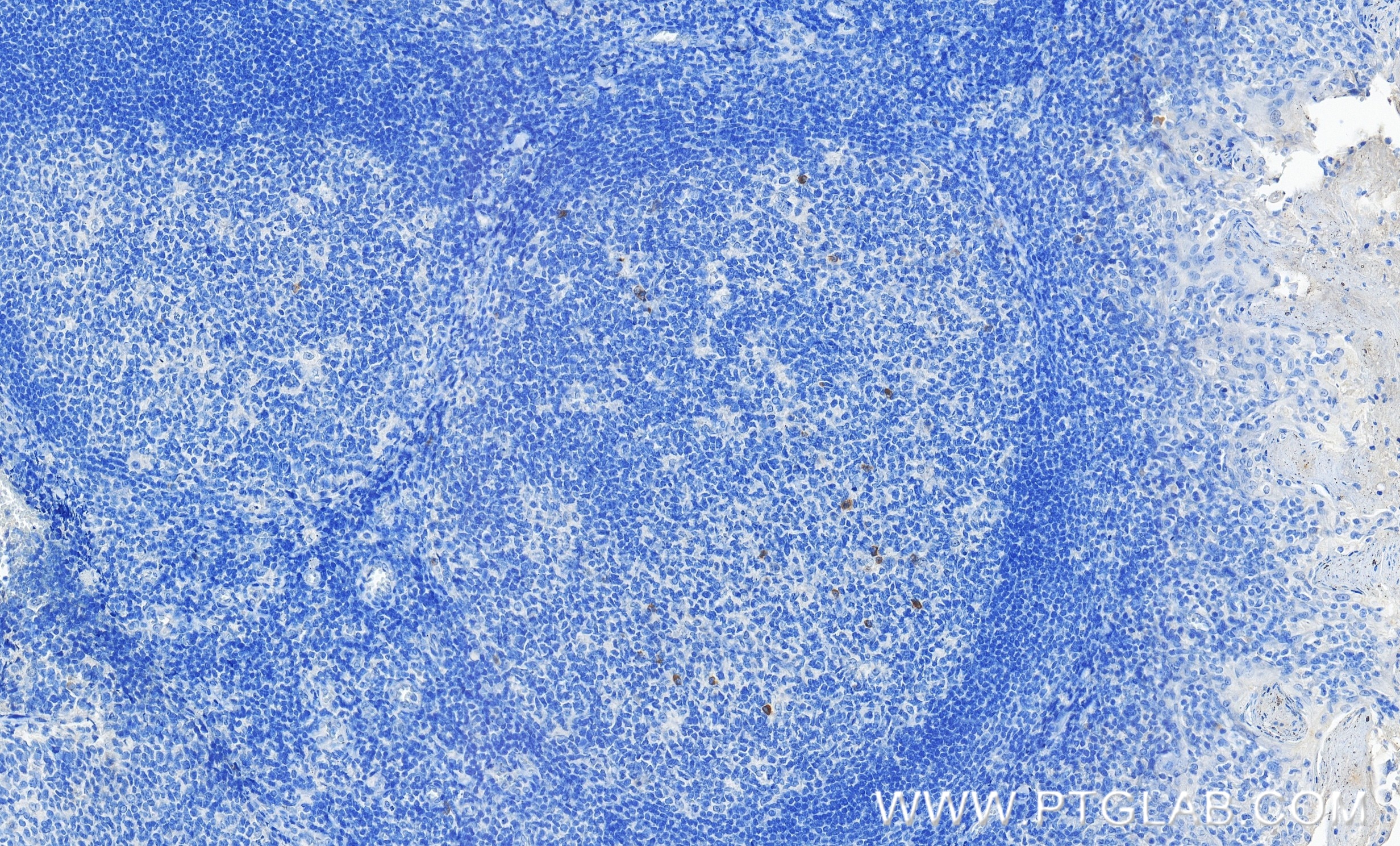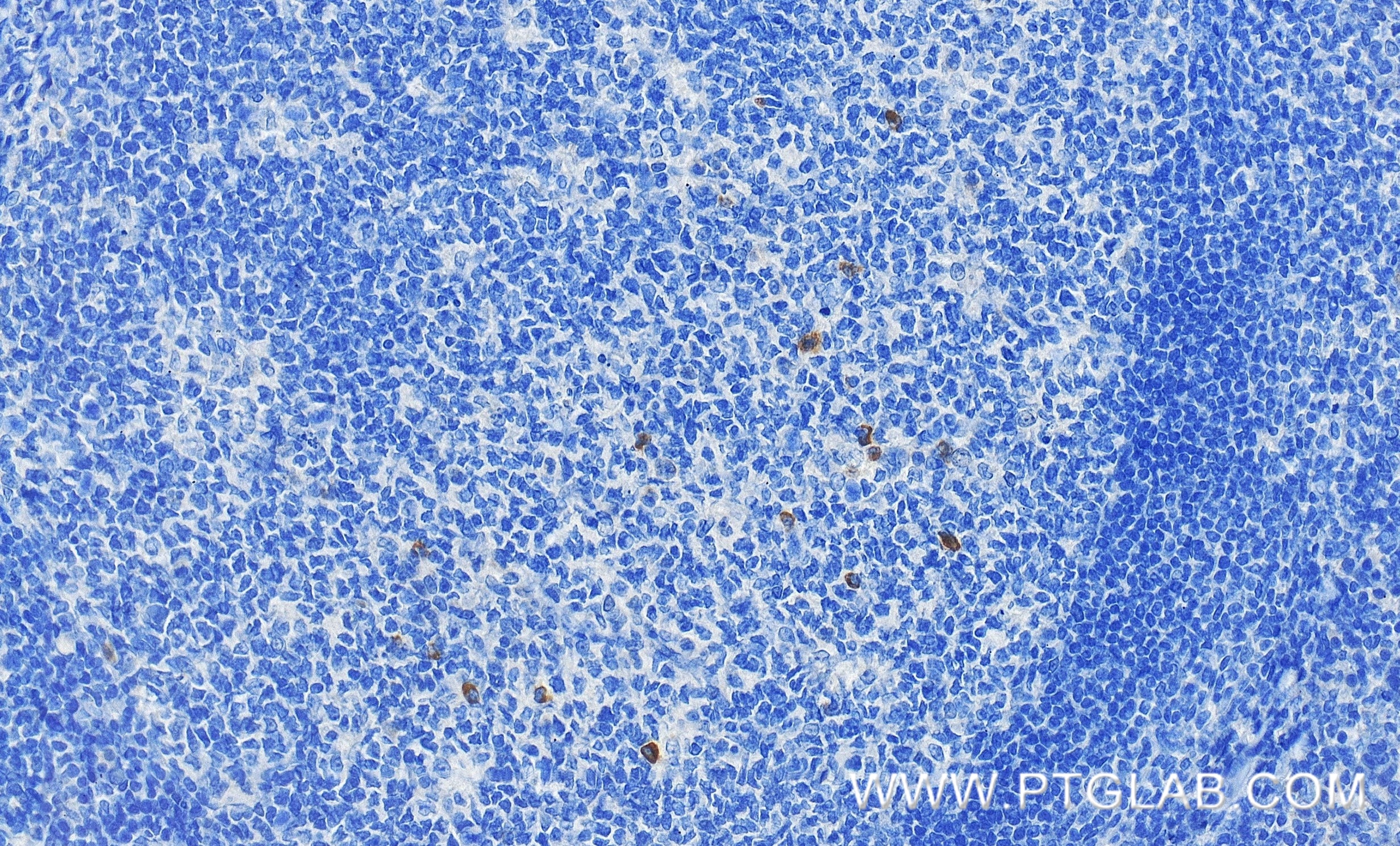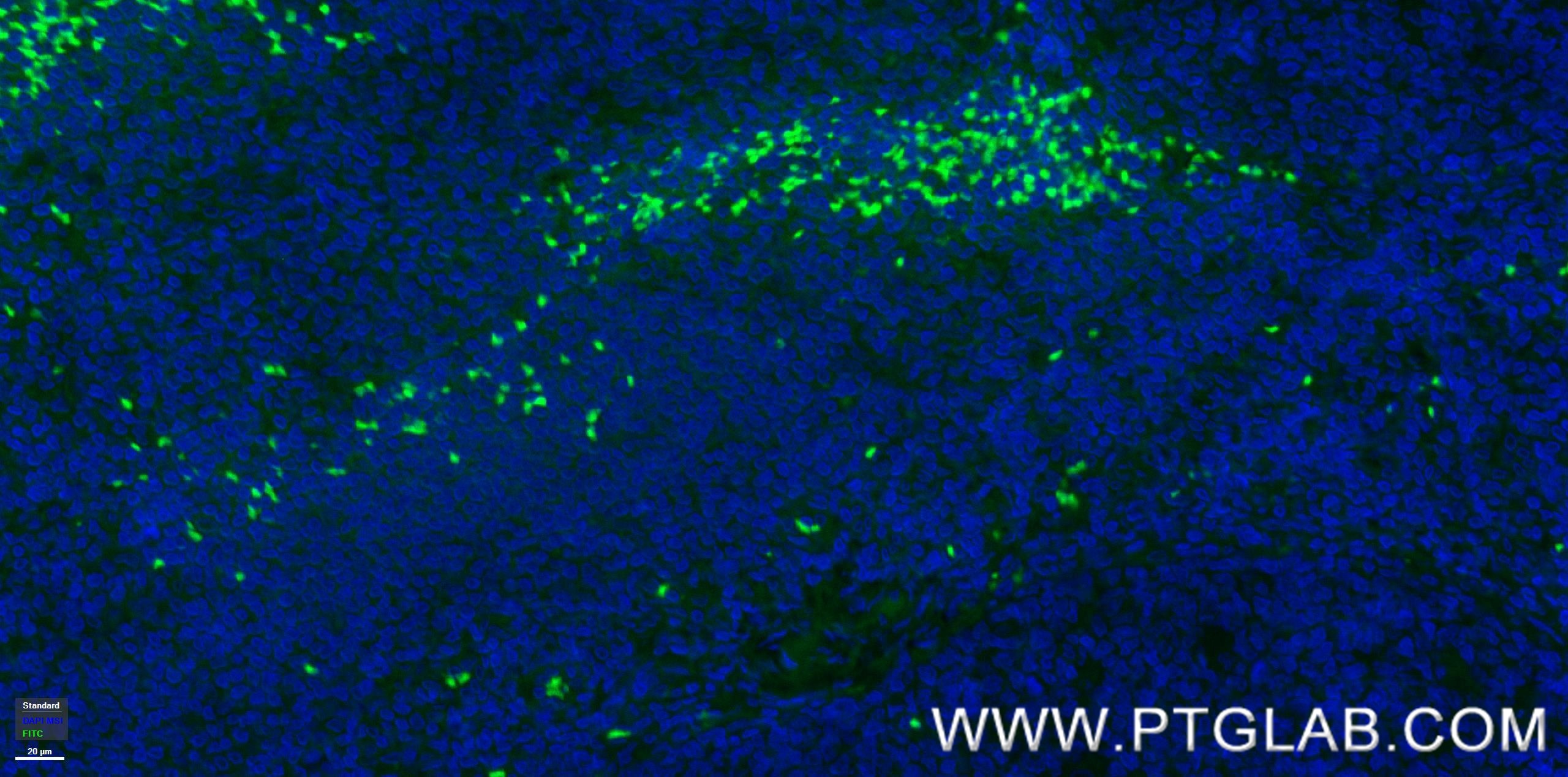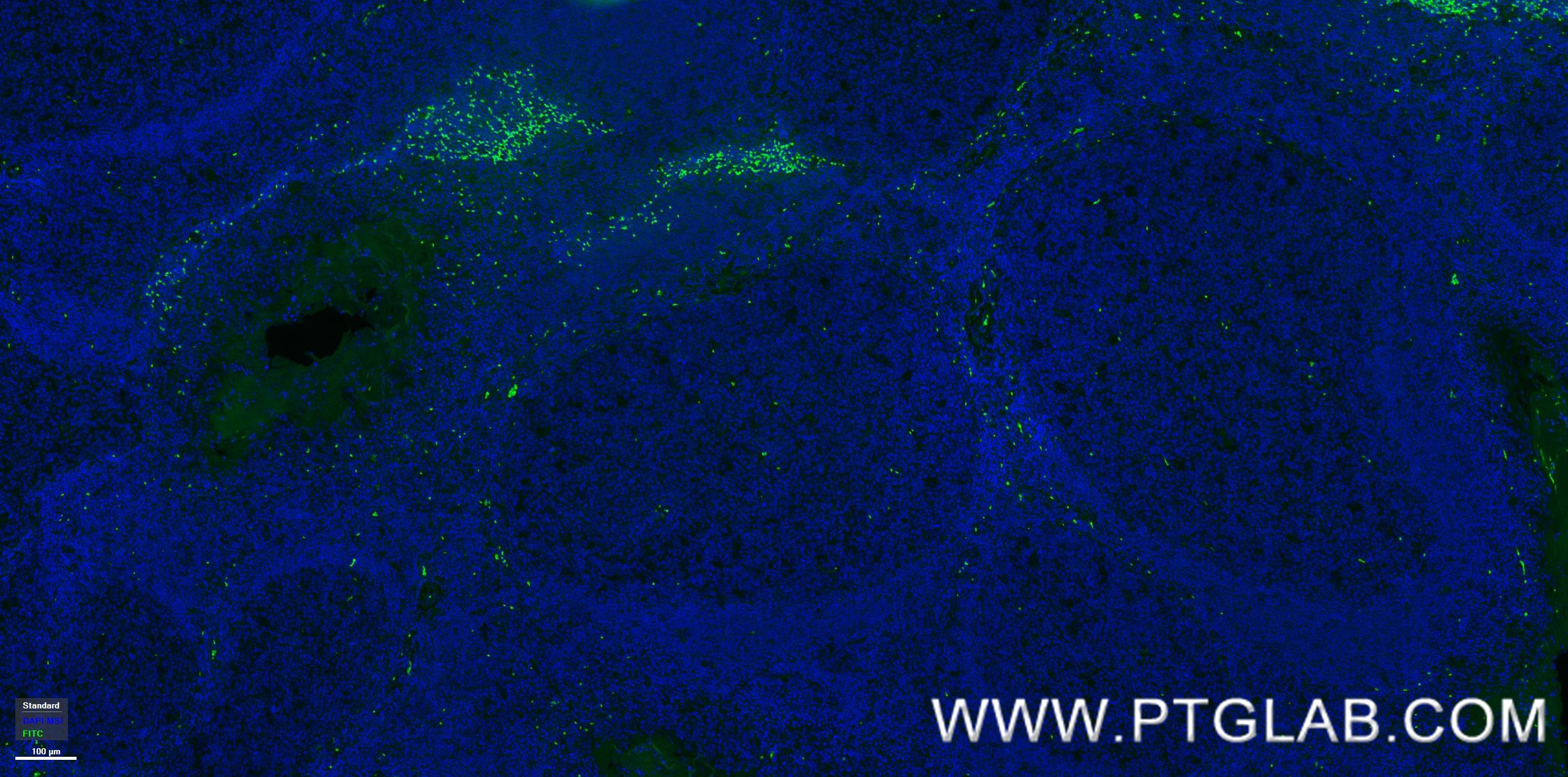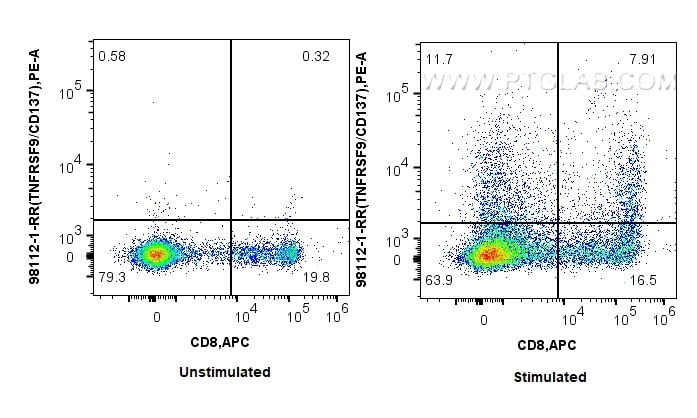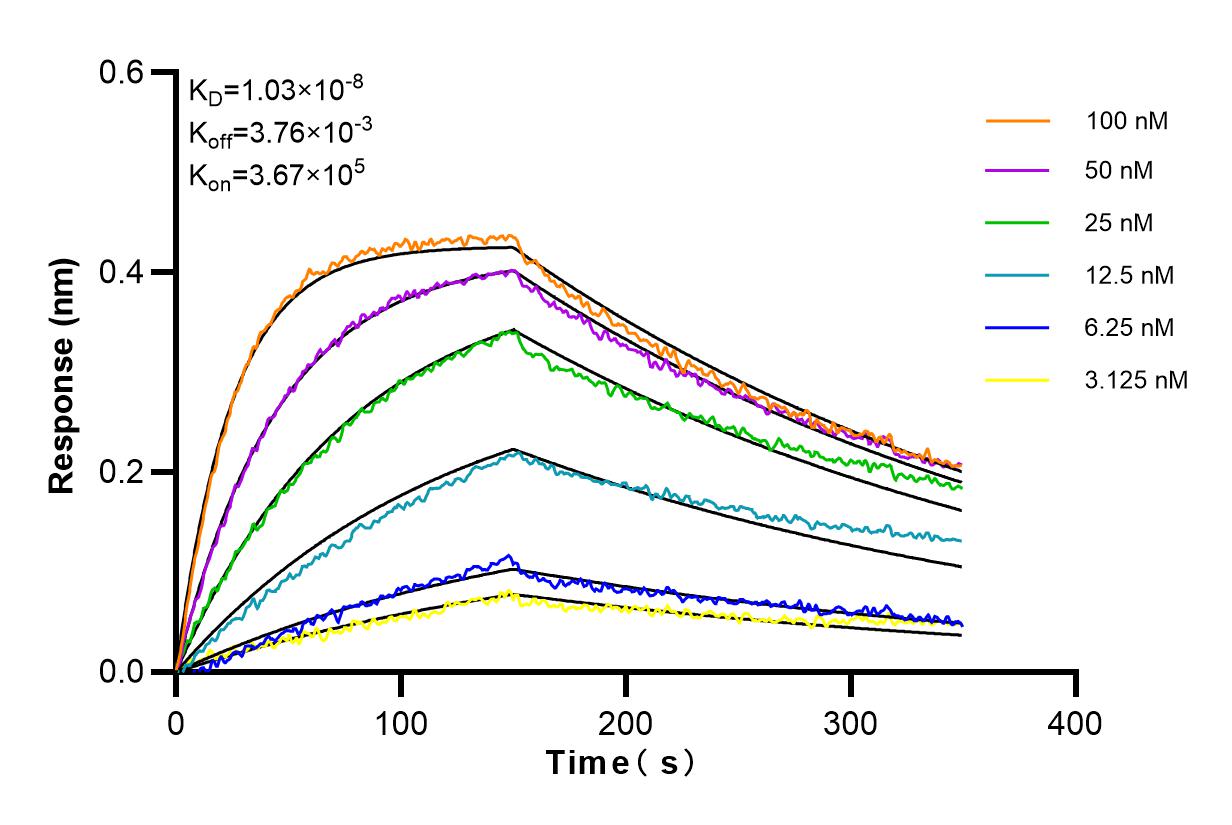Tested Applications
| Positive IHC detected in | human tonsillitis tissue Note: suggested antigen retrieval with TE buffer pH 9.0; (*) Alternatively, antigen retrieval may be performed with citrate buffer pH 6.0 |
| Positive IF-P detected in | human tonsillitis tissue |
| Positive FC detected in | Con A treated human PBMCs |
Recommended dilution
| Application | Dilution |
|---|---|
| Immunohistochemistry (IHC) | IHC : 1:50-1:500 |
| Immunofluorescence (IF)-P | IF-P : 1:50-1:500 |
| Flow Cytometry (FC) | FC : 0.25 ug per 10^6 cells in a 100 µl suspension |
| This reagent has been tested for flow cytometric analysis. It is recommended that this reagent should be titrated in each testing system to obtain optimal results. | |
| Sample-dependent, Check data in validation data gallery. | |
Product Information
98112-1-RR targets TNFRSF9/CD137 in IHC, IF-P, FC applications and shows reactivity with human samples.
| Tested Reactivity | human |
| Host / Isotype | Rabbit / IgG |
| Class | Recombinant |
| Type | Antibody |
| Immunogen |
Recombinant Protein Predict reactive species |
| Full Name | tumor necrosis factor receptor superfamily, member 9 |
| Calculated Molecular Weight | 28 kDa |
| GenBank Accession Number | BC006196 |
| Gene Symbol | TNFRSF9/CD137 |
| Gene ID (NCBI) | 3604 |
| RRID | AB_3672259 |
| Conjugate | Unconjugated |
| Form | Liquid |
| Purification Method | Protein A purfication |
| UNIPROT ID | Q07011 |
| Storage Buffer | PBS with 0.09% sodium azide, pH 7.3. |
| Storage Conditions | Store at 2 - 8°C. Stable for one year after shipment. |
Background Information
CD137, also known as TNFRSF9 or 4-1BB, is an inducible T cell surface receptor that belongs to the tumor necrosis factor receptor superfamily. CD137 is a transmembrane protein expressed on the surface of activated T-cells. In addition, activation-dependent expression of CD137 has also been found in B lymphocytes, monocytes, and diverse nonlymphoid cell types. CD137 provides a co-stimulatory signal that enhances the survival, and differentiation of cells, and has a crucial role in the development of CD8 cytotoxic T cells and anti-tumor immunity. (PMID: 9826581; 23696891)
Protocols
| Product Specific Protocols | |
|---|---|
| FC protocol for TNFRSF9/CD137 antibody 98112-1-RR | Download protocol |
| IF protocol for TNFRSF9/CD137 antibody 98112-1-RR | Download protocol |
| Standard Protocols | |
|---|---|
| Click here to view our Standard Protocols |

